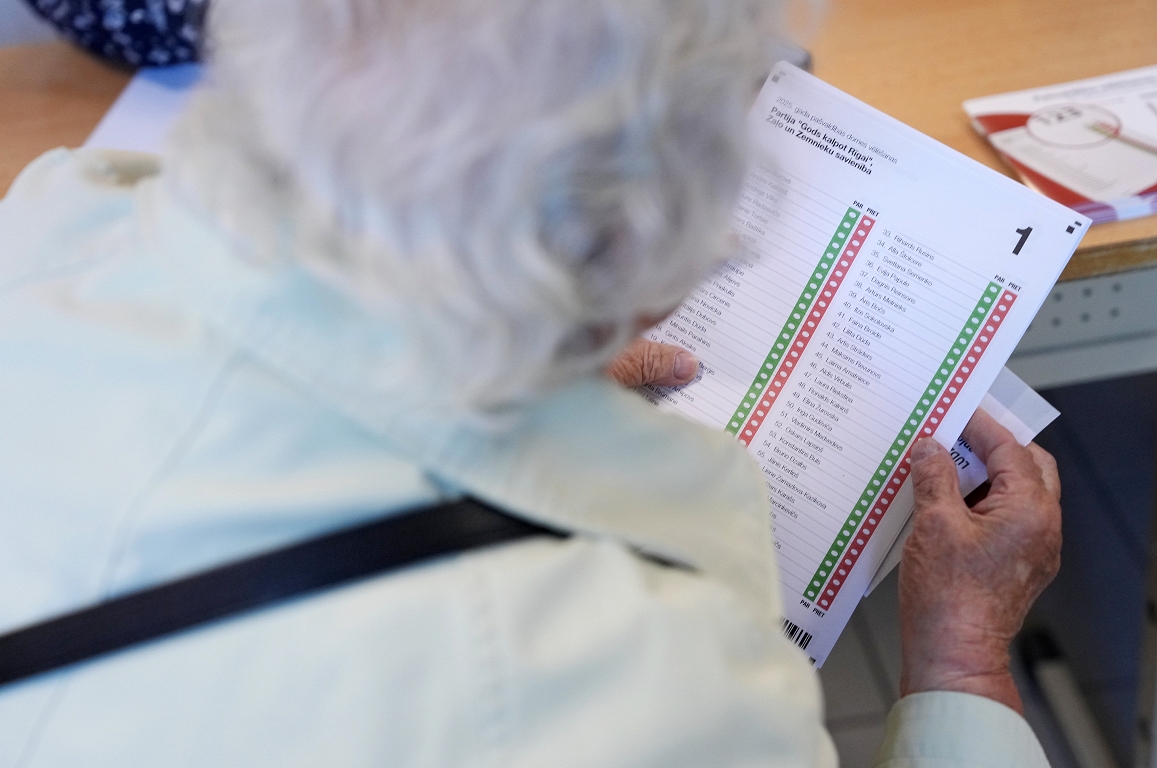It is planned to simplify the construction of buildings, the registration of companies and develop the use of e-services / day to reduce the bureaucracy

The Bureaucracy Reduction Action Group has submitted to the government 21 priority measures to reduce bureaucracy.
The Action Group encourages entrepreneurs to provide the electronic services not to duplicate paper. In order to do this, all ministries and their subordinate authorities must identify services, which are provided to their beneficiaries, both electronically and in paper form, and carry out the necessary operational service backup paper.
It is also planned to automatically activate e-mails for new legal entities after registration in the Latvian Enterprise Register (UR) in addition to finding a solution within a reasonable time to activate the e-mails all entities already registered in the registers. It is also planned to provide legal entities to use the e-mail through authorized persons.
There is also planned shortening of the deadline for examination of the applications and the change of practice to submissions. Namely, shortening and simplifying the content of public authorities’ answers are intended, which would promote the possibility of preparing the answer in a shorter period of time. In order to achieve this, it is planned for all ministries and subordinate authorities to review the practice of submitting answers by shortening the text to be included in the answers, focusing on the substance of the answer.
Along with the Task Force encourages the shortening of issuing administrative acts and simplifying the content. It is planned to revise all ministries and their subordinate authorities to review the administrative process in the institution and evaluate its deadlines, and decide on the shortening of the issuance of administrative acts accordingly and to the relevant amendments to the regulatory enactments. In addition to the assessment of the notification of the administrative act favorable to the person, the notification shall be only to be notified only as part of the decision, as well as notify the Administrative Act.
Also in the field of road transport, the bureaucracy reduction measures are planned, namely to develop the use of e-services, including the application for remote receipt of registration documents and additional license plates, in some cases, the drawing up and receiving the driving license remotely, and refusing to transfer the state registration. It is also planned to abandon the paper -shaped invoice for the trial drive with the marketing vehicles, as well as the submission of a paper form certificate (COC) to the registration of new vehicles, replacing them with an electronic format certificate.
In addition to the procedures for the registration of the vehicle in the opening of the inheritance, as well as to abandon the training card for each driving school training site.
Information technology solutions to improve the management of active employment measures are also encouraged. For example, it is planned to abandon the status of the « job seeker » to the persons to be granted « unemployed » status, thus providing equal support and services to all recipients of service. In the opinion of the working group, this will result in the reduction of working hours consumed by the State Employment Agency (NVA) employees in the administration of various statuses.
It is also planned to review the procedure for organizing and implementing the SEA and set the implementers of the measures as universally as possible in order to reduce the time period of adaptation of measures, to change the involvement of engagement criteria in accordance with the labor market changes. Thus, in the opinion of the working group, the adjustments will not require amendments to the related Cabinet regulations. At the level of practical implementation, it is planned to delegate the development and application of appropriate criteria for the SEA.
Optimization of information between medical institutions and the State Commission for Health and Work Ability Expertise is also encouraged, including providing medical and capacity expertise doctors’ access to e-health doctors.
Optimization of the activities of the Social Enterprises Commission led by the Ministry of Welfare is also planned. Namely, changes to the Commission’s activities are encouraged, stipulating that not all annual reports of social enterprises are assessed and the opinions are provided, but only those who have been identified.
Along with the principle, the working group calls for public administrations to request any information only once, then distributing it with each other, including, including, to develop a merged Central Statistical Bureau and the State Revenue Service (SRS) information request for e -format for tax administration and statistics to reduce the time and cost of merchants. In 2025, it is planned to abandon statistical reports « 2-work » and « 2-rodents », but from 2026 to add to the developed uniform information request for other institutions, such as the Bank of Latvia and others.
The working group notes that the financial statement of the closing is currently submitted to both the UR and the SRS, so it is intended to evaluate the possibility and to determine that the financial statement of the closing is only submitted in one institution and the authorities shall ensure the circulation of information.
There is also a planned registration of apartment owners as a legal entity to get a loan for home renovation. Namely, it is intended to amend the Law on the Apartment Property, which provides for the legal identification of the apartment owners, the registration number, information on the representative of the apartment owners ‘community and information on the true beneficiaries of the apartment owners’ community.
Simplification of support provided by JSC « Development Finance Institution » Altum « » (« Altum »). It is planned to simplify and standardize the application forms by developing application formats, providing remote identification of merchants, optimize internal customer research procedures and develop facilitated requirements for funding of up to EUR 100,000.
It is also planned to reduce the amount of information requested using the data and information available to public authorities, as well as to reduce the frequency of reporting during the project implementation and to exclude formal supervisory criteria by reviewing Cabinet regulations for the implementation of programs – simplifying them and combining and developing new rules for each program.
At the same time, it is proposed that, if the authority has identified a overpayment or incorrectly made payment, the authority may make a refund to an account from which the contribution is made without the person’s application. Currently, in some cases, not only the court decision (opinion) but also the person’s application is required for repayment of overpaid or incorrectly paid.
It is also planned to introduce an e-account registration option alongside the official electronic address. Currently, the person must write an application whose sole purpose is to inform the current account to which the benefit shall be transferred to various social benefits and other payments. With the registration of the account alongside the e-mail, you will be able to give up applications for sickness benefits and other benefits or financial support. Thus, by granting a « automatically » benefit when a person is entitled to it, the working group explains.
The Working Party also calls for evaluation and introduction of information on the provision of learning information once an educational institution, making sure that individual activities do not have to write additional submissions or permits, such as interest groups, outside the school activities organized by the educational institution, camps. It is encouraged to provide the possibility of digitally submitting all the documents to be submitted.
An automatic sending of e-wishes from a medical institution to the SRS EDS is also intended, where the person confirms their submission to the refund.
The Working Party has also identified various incomplete labor protection materials at many Internet addresses, such as « stradavesels.lv », « vdi.gov.lv ». Consequently, it is planned to collect all materials on one website and advertise this address.
It is also intended to promote the energy efficiency of private houses, to determine that the construction (rebuilding and renovation) for the improvement of the energy efficiency of one -dwelling and two apartments shall apply the procedure for notification.
It is also planned to review, simplify and digitize the company’s registration – data filling form.
On the other hand, in order to promote the availability of a new and modern dwelling, it is promised to significantly facilitate the administrative process of the construction of private houses, stipulating that a single -dwelling dwelling house with an indoor area of not more than 150 square meters shall be subject to the explanatory process process.
The Working Party also calls for a significant facilitation of small buildings, stipulating that smaller, namely, buildings not exceeding 25 square meters of construction does not apply to the administrative process of construction, they may not register in the State Real Estate Cadastre Information System and may not be recorded in the Land Register. If a person wants the registration and recording of such buildings, the procedure for notification shall be applied for construction.
It is also planned that residential buildings and auxiliary buildings, which do not exceed 60 square meters, are subject to notification procedures for construction. It is planned to establish cases where the simplified procedure is not applied – for example, for the historic center of the city, areas with special status, dune protection zones and flooded areas.
It has also been encouraged to use machine translations into a foreign language for translation of reports in Latvian and cancel the requirement for the accuracy of the machine translation, replacing it with a note that the translation was prepared with the machine translation tool.
The impact of priority measures, or savings, is planned to be calculated by the formula, multiplying the time saved by the size of the target group and the average salary in the sector. The target group could thus save EUR 1,716 million, the target group of the entrepreneurs – 404,861 euros, and the public administration – EUR 678,888.
The State Chancellery will have to ensure monitoring of the introduction of priority measures, discussing the progress of implementation at meetings of state secretaries.
On the other hand, ministries and their subordinate authorities will have to evaluate proposals from public organizations and individuals to reduce bureaucracy and to inform the State Chancellery by 30 June this year of their implementation opportunities, the type and the planned implementation period.
The State Chancellery will have to report to the government in September to progress and results of the implementation of priority measures, as well as a further approach to reducing bureaucracy.
It has already been reported that Prime Minister Evika Siliņa (JV) issued an order in March to set up an action group to reduce bureaucracy. The action group is led by Raivis Kronbergs, Director of the State Chancellery, while the deputy head is Aigars Rostovskis, president of the Latvian Chamber of Commerce and Industry.







